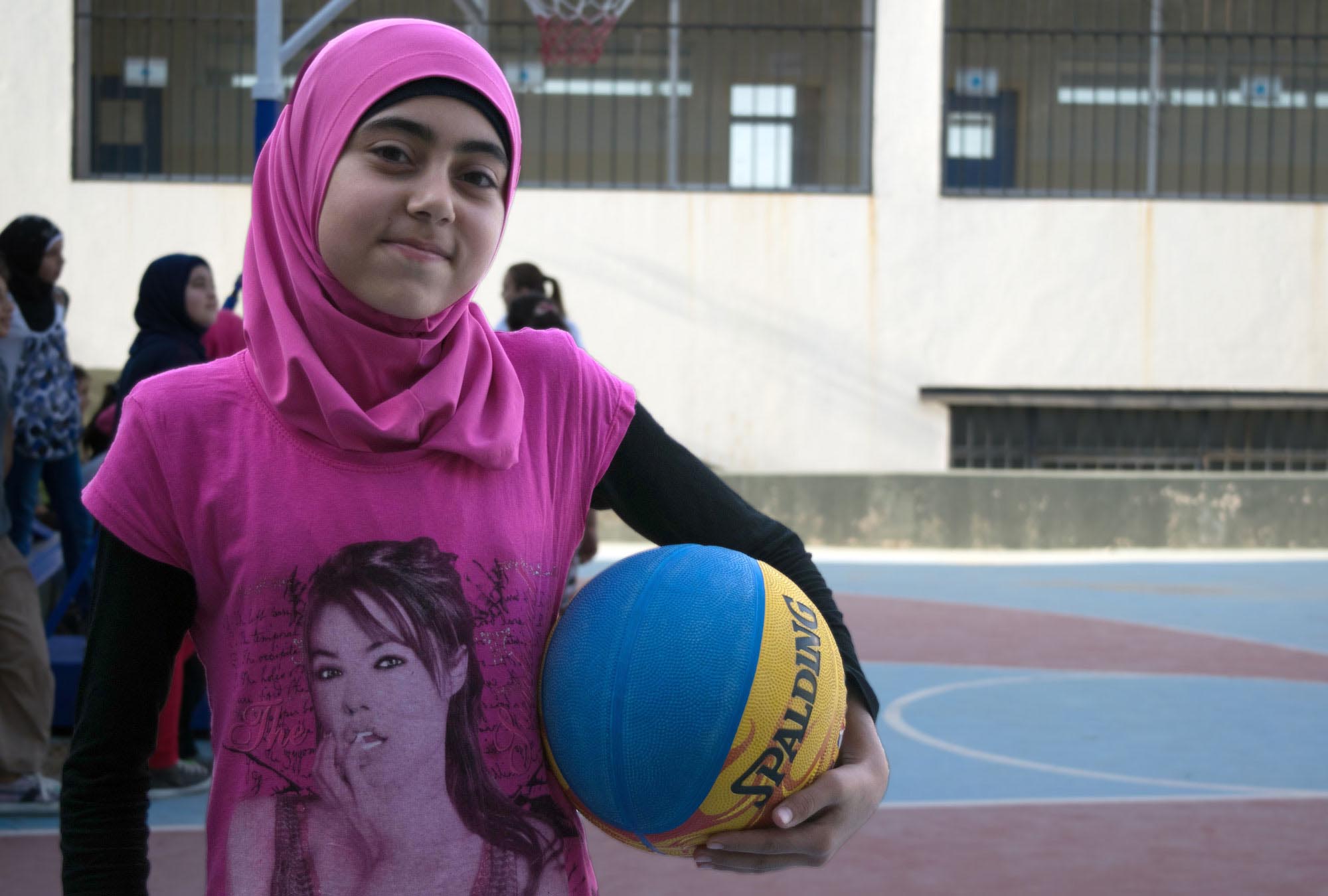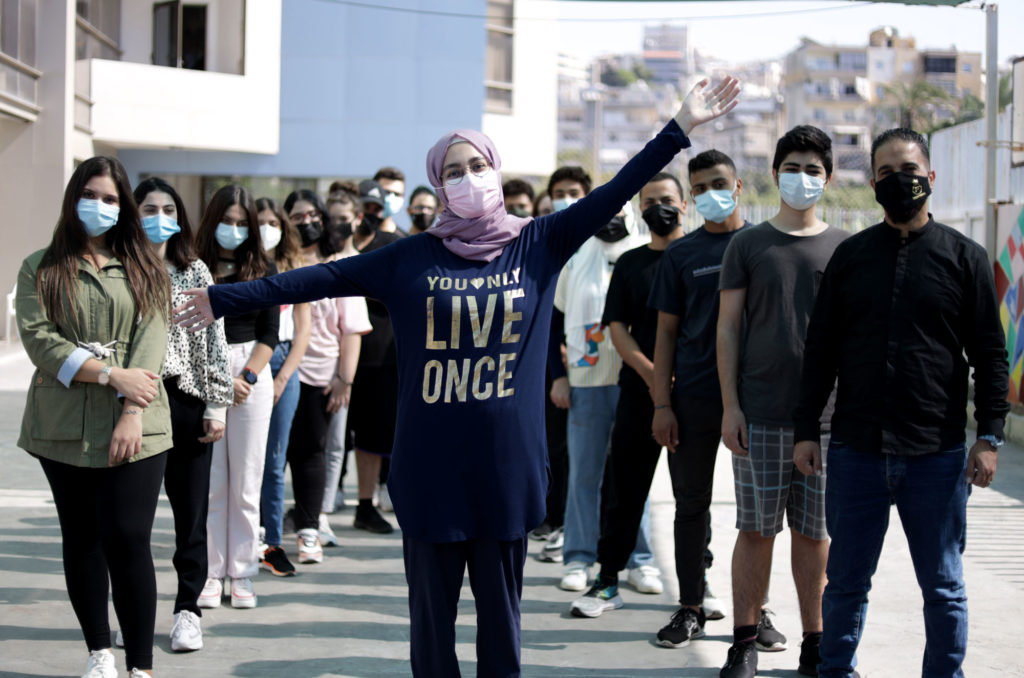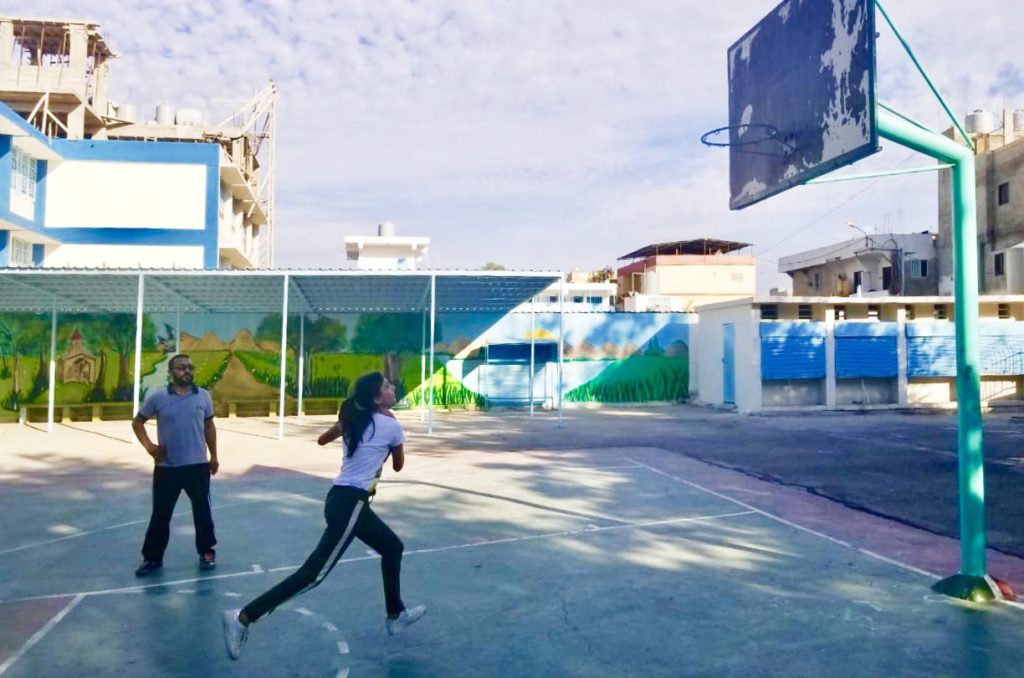Sep, 2014
Razan’s eyes are full of joy and excitement as she waits on the bench and watches her teammates play. With a critical eye and competitive spirit, she checks their routine and glances over at her relatives from time to time.
The village of Qarqaf, like many others located in Akkar region of Lebanon, is plagued by poverty, electricity cuts, unpaved streets, a shortage of clean water and a lack of educational programs. The area’s resources also have been stretched by the influx of refugees from Syria, nearly one-third of the million who have arrived in Lebanon.This is the story of 13-year-old Razan Saad Ghomrani from Qarqaf who is taking part in the basketball training session at her school. Anera organized the session as part of the Sports for Peace II project that aims at strengthening cooperation and coexistence among communities in northern Lebanon that have experienced sectarian tensions.
But, on a quiet Wednesday afternoon, the usual worries and complaints are replaced by the sound of laughter and bouncing balls. The tensions between host and refugee communities have melted away as the coach yells out, “I need to see you dribble the ball and not let it go.” Razan and her young teammates giggle as they try to obey her, ignoring the usual social rivalries and focusing on just having fun.
Razan was excited to join the team. “The wife of Qarqaf’s mayor called my mother and told her about the training session in the school playground and asked if she would like me to join.”
Razan was born and raised in Qarqaf and knows most of the kids there, but had not really mingled with them socially. “I don’t see my friends a lot because they live far from my house so when we found out about the training I thought it would be great if we could all join together,” she says. “And now I get to see them twice a week and make new friends too.”
Some 40 girls from Qarqaf have joined the initiative, which is part of the Sports for Peace program funded by USAID’s Office of Transition Initiatives (OTI). The aim of the project is to use sports to bridge the gap between conflicting communities.
Even after Razan plays on the field she doesn’t go home but prefers to linger and watch her friends play. She often comes early too so she can chat and be with other girls her own age. “During breaks we get to talk about random things, like school and our families and we drink water until we can get back to the game,” Razan says.
Like her friends, Razan sees this program as a way to bond, create new friendships, stay active and have fun. She says the girls have stopped seeing their differences, their different nationalities and dialects. Now, they just play and laugh and work together as a team with a feeling of confidence and joy.
Razan exclaims with a smile, “We wish this would never end.”




